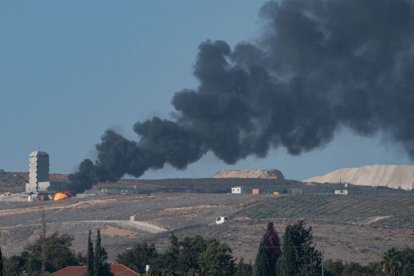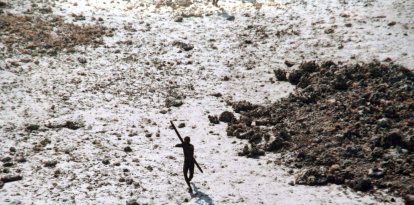Israel strikes 180 Hezbollah targets in southern Lebanon in a few hours
In turn, the Shiite terrorist group has launched around a hundred rockets against northern Israel, with no reported casualties.

Israeli strikes against Hezbollah positions in southern Lebanon, file image.
The Israel Defense Forces (IDF) carried out a series of airstrikes against Hezbollah positions in southern Lebanon. The Israeli strikes come a day after the bombing against a suburb of the Lebanese capital Beirut, in which a senior commander of the Shiite terrorist group was killed, along with other Hezbollah military leaders.
The IDF claimed to have destroyed "thousands" of launcher barrels belonging to the Hezbollah terrorist group in this attack, which took place throughout Saturday morning. The strikes are in anticipation of the possible Hezbollah response against Israel.
Following this first round of air strikes, Israel announced hours later that it was beginning a second wave of bombing against Hezbollah positions in Lebanon.
The Jewish state increased its pressure on the Shiite militia this week with several forceful attacks that disrupted the terrorist group, first with the simultaneous explosion of Hezbollah's messaging devices. The next day something similar happened with different electronic devices. The strikes left several thousand wounded in a very targeted attack against the Hezbollah terrorist group. This Friday, an F-35 flew over Beirut and launched two projectiles killing Ibrahim Aqil and a dozen members of the Radwan forces.
Hezbollah responded to Israel's attacks by launching of a hundred rockets that hit northern Israel at different points. There were no casualties or major damage. This is the most recent wave of air strikes, which have been happening frequently since the beginning of the ground invasion against the Gaza Strip.
The IDF, faced with this escalation of tension between Israel and the terrorist group, appears to be raising its level of alert in the northern region. Chief of Staff Herzi Halevi held a meeting Friday with commanders in the northern region. Similarly, the Israeli Air Force chief assured this Saturday that his corps is at the highest possible level of alert.
"We continue to maintain the highest possible level of readiness in the Air Force," Maj. Gen. Tomer Bar said during a meeting with IAF commanders in a video shared by the military. "Everything is ready. Now, depending on developments, we are taking the most appropriate shots for the context," he added.
RECOMMENDATION






















